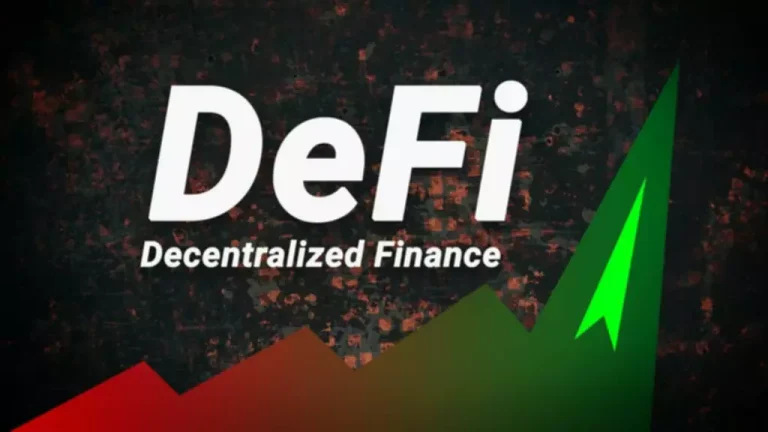What is Regenerative Finance ReFi and How to Navigate This New Financial Frontier?
Content
Major companies like Microsoft and Google, among others, are already heeding this call, keen on contributing to a sustainable future. By working together and supporting the growth of regenerative finance, we can contribute to the transition to a more sustainable and equitable future. Many of the industries and practices that contribute most significantly to greenhouse gas emissions, such as fossil fuel extraction and consumption, are heavily reliant on financial support. Financial institutions, through their investment and lending practices, can have a regenerative finance major influence on the trajectory of these industries and their impact on the environment.

The potential of regenerative finance to support a just transition
Arithmetic tells us we will never achieve a steady state if financial capital compounds indefinitely and is reinvested in more growth rather than in ways that enhance social and natural capital. In conclusion, regenerative finance offers a promising solution for addressing the climate crisis and supporting Bitcoin a just transition to a sustainable and equitable economy. By aligning financial incentives with the regeneration of natural and social systems, financial systems can actively contribute to the health and well-being of people and the planet. ReFi development combines the principles of decentralized finance with sustainability and social impact, aiming to create financial systems that not only generate profit but also contribute positively to the environment and society. Despite the challenges, ReFi offers a great opportunity towards a new financial path ahead, leveraging emerging technologies for environmental benefits. It offers a fertile ground for the innovation of new financial products and services that align with regenerative principles.
Empowering Your Financial Future with Defiway
- Additionally, as regulatory frameworks evolve to accommodate these new financial models, ReFi projects will gain greater legitimacy and support.
- Smart contracts are self-executing contracts with the terms directly written into code.
- In a Morgan Stanley study released last year, 79 pr cent of individual investors expressed interest in sustainable investing, and millennial investor interest rose four percentage points to a new high of 99 per cent.
- This shift is not merely a trend but a necessary evolution in response to the growing awareness of climate change and social injustice.
- The tragedy of the commons refers to the concept of overconsumption of public goods, such as clean air or fresh water.
- Early green shoots of Regenerative Capitalism are already manifesting in a multitude of scalable projects, and enterprises on the ground.
Biocredits, on the other hand, are an emerging financial market that also turns ecosystem restoration and biodiversity enhancement into profitable ventures. In this system, businesses or governments can earn credits by engaging in projects that restore natural habitats or improve ecological https://www.xcritical.com/ health. With credits being tradable, organizations can offset their environmental impact by purchasing them, creating a direct financial incentive for environmental preservation and regeneration. Regenerative finance offers a way to align financial incentives with the transition to a sustainable and equitable economy. By prioritizing investments and financial instruments that support the regeneration of natural and social systems, financial systems can actively contribute to the transition to a more sustainable future. Also, Regenerative finance recognizes that financial systems are not isolated from the rest of society and the environment, and must be designed in a way that takes into account their broader impacts.
Challenges Facing Regenerative Finance
Building in ReFi can make a real difference in reducing CO2 emissions and achieving the targets set forth in the Paris Agreement. Traditional green bonds are issued by companies with a commitment to achieving specific environmental objectives, often related to carbon reduction. These bonds may come with built-in enforcement mechanisms, such as the obligatory purchase of carbon credits if targets are not met, or they may simply offer a more cost-effective way to finance sustainability investments. Patagonia, best known for its outdoor apparel, is more than just a company that sells goods; it’s a B Corporation that uses business for the greater good. Patagonia shows how an organization can blend its financial success with a commitment to good environmental impact through funding initiatives for sustainability, preservation of the environment, and regenerative agriculture.
Custom Solutions Tailored to Your Needs
The lessons learned from successful ReFi projects and the ability to address challenges position ReFi as a key player in transitioning to a sustainable and equitable financial system. ReFi initiatives can drive significant positive change in the global economy by integrating transparency, community engagement, and innovative incentives. Kevin Owocki, founder of Gitcoin, has put together a beautiful map of what he calls “impact DAOs”.

As with any crypto project, you should research the team, road map, and reputation before allocating any funds to it. Regenerative finance is generally an automated platform governed by smart contracts. Loans are handled instantaneously and the crypto will be deposited into a user’s digital wallet when a loan is confirmed. • Modify capital gains tax so that investors are encouraged to put money into the things we need on timescales that matter.
Blockchain technology contributes to ReFi by creating a record of individuals’ involvement in funding or overusing public goods. It can create verifiable social incentives for communities to benefit the society around them through digital ownership certificates built with non-fungible token (NFT) technology. If ReFi is correctly implemented and widely adopted, the world could see adequate funding of public goods, mitigating the detrimental effects of the tragedy of the commons. The technology fits like a glove in this use case, creating the necessary foundation to make it a reality.
IntroductionThe current speculative excess and ethical shortcomings of contemporary Wall Street, the problems of too-big-to-fail and, more importantly, other “in-system” failures have all given the economy and the current financial system a bad name. The financial system is designed to propel growth in the economic system with no regard for the physical boundaries of the planet and little regard for the social constraints of human wellbeing. Science tells us that this is fundamentally misaligned with the finite planetary boundaries of the biosphere. Meeting these challenges demands not merely problem solving, but systemic change to address root causes.
Kevin Owocki is a blockchain expert, CEO/founder of SuperModular and co-founder of Gitcoin, a venture studio that builds regen web3 projects and has helped to raise and distribute over $72 million for open-source projects. His new business venture SuperModular, aims to build a modular stack of products used specifically for public goods and funding tools. Prior to his career in web3, Kevin spent 15 years in the world of web2, working as a CTO and founder of open-source software and web startups. What if financial systems could actively contribute to restoring the planet instead of depleting it? This simple yet profound question challenges the very foundation of how we think about finance. Regenerative Finance, or ReFi, presents a new paradigm that seeks not only to mitigate harm but to restore, renew, and regenerate what has been taken.
This decentralized method ensures that economic choices are made, considering the necessities and ideals of local communities in mind. In addition to financial advantages, ReFi encourages investments in businesses and projects that benefit communities and the planet as a whole to support clean energy, ethical farming, or community development. As awareness of environmental and social issues grows, demand for sustainable finance solutions increases. ReFi projects are well-positioned to meet this demand, leveraging innovative technologies to drive positive, tangible impacts.
These shocks often come from the neglected parts of the system each entity comprises. ReFi aims to use web3 technology and decentralized coordination to help solve these issues and build new incentive structures. ReFi development offers unique benefits that extend beyond traditional financial metrics, focusing on environmental restoration, social equity, and long-term resilience. By creating ReFi solutions, businesses can directly contribute to positive environmental and social outcomes, create innovative impact assets, and engage deeply with stakeholders. These advantages not only differentiate ReFi from DeFi but also position businesses at the forefront of sustainable innovation, leading to a more equitable and resilient future. Regenerative finance (ReFi) is an innovative approach to finance that integrates sustainability and ecological restoration into financial systems.
With a comprehensive suite of products that simplify payments, enhance security, and streamline asset management, Defiway is redefining the way businesses and individuals engage with cryptocurrencies. Our commitment to accessibility and innovation positions us as a trusted partner in the ever-evolving world of digital finance. The conventional financial sector is pushed by ReFi to reconsider its priorities. It proves that finance can be a powerful instrument to promote change instead of just making money. The advocacy of ReFi for accountability, transparency, and impact measurement can serve as a model for the entire financial sector to adopt the same principles. The possibility for innovation applies to regulatory authorities and legislators who can be persuaded to create structures that fortify and level up ReFi practices.
While the pattern of eight universal principles apply to all places, each place must define how the pattern applies based on their own unique contexts. Regeneration is the process that delivers sustainable living systems as the outcome of that process. Therefore, intelligent system design (and appropriate humility) would suggest using the same universal patterns and principles the cosmos uses to build stable, healthy, and sustainable systems throughout the real world as the model for our human economy.
